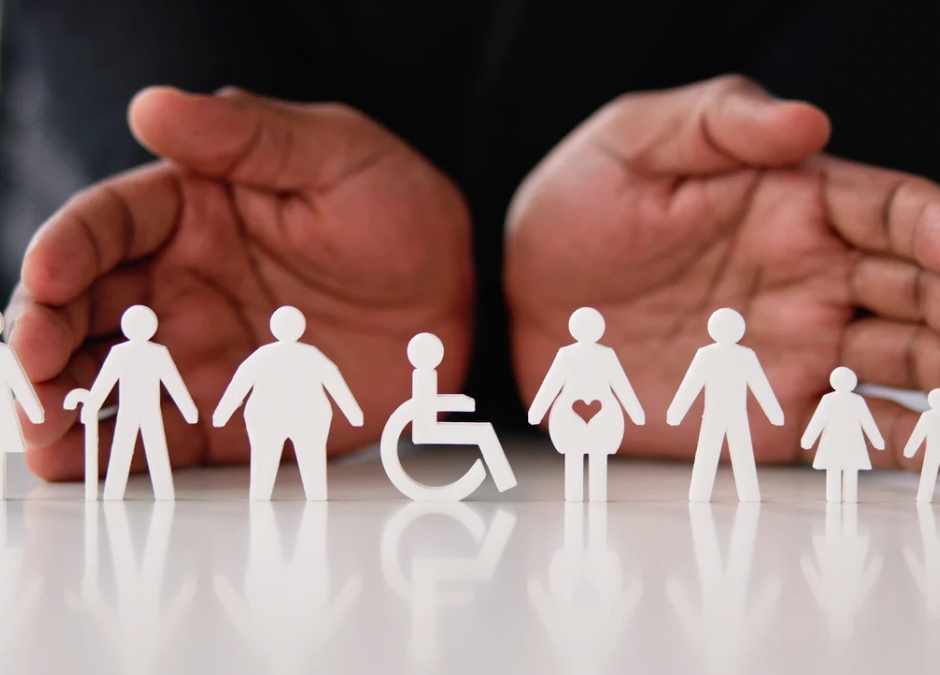
Manchester Ship Canal Company Ltd v United Utilities Water Ltd (No. 2) [2024] UKSC 22
October 12, 2024
Law and Liberation: Perspectives of young Black Social Justice Lawyers
October 13, 2024By Suulola Akinkunmi Ademola.
Reading time: four minutes
Introduction
The legal profession is a cornerstone of a fair and just society emphasising natural justice, demanding rigorous intellect and a commitment to justice. However, for disabled individuals aspiring to join this esteemed field, the path is often accompanied with obstacles. Despite advancements in diversity and inclusion (D&I), the merging of disabled professionals into the legal realm remains an area with significant challenges. If the constitution or law recognises these disabled individuals then they shouldn’t be streamlined in aspects of their professional dream because of their shortcomings or disability.
Challenges
One of the primary challenges disabled individuals face in the legal profession is accessibility. This issue manifests both physically and technologically. Many law firms and courthouses still lack essential accommodations such as ramps, elevators, and accessible restrooms, which are crucial for individuals with mobility impairments. Looking further, digital tools such as the Law Pavillion commonly used in legal research and practice often lack adequate accessibility features for those with visual or auditory impairments. These physical and technological barriers can significantly hinder the participation of disabled individuals in legal work.
Discrimination irrespective of it being frowned upon by the constitution and other statutes in Nigeria such as the DISCRIMINATION AGAINST PERSONS WITH DISABILITIES (PROHIBITION) ACT, 2018, bias and stereotyping pose substantial obstacles. Unconscious biases about the capabilities of disabled individuals often influence hiring decisions, promotions, and the allocation of important cases. This implicit bias can unfairly limit opportunities for disabled professionals. Stereotypes about their competence or dedication to the profession can further contribute to a lack of advancement and recognition.
The lack of reasonable accommodations within legal workplaces is another significant barrier. Many firms are unprepared to provide necessary adjustments such as flexible work hours or modified job responsibilities. The absence of tailored support structures, including internship programs designed to meet the unique needs of disabled professionals, can impede their career development and success.
Educational barriers also play a critical role in hindering the entry of disabled individuals into the legal profession. Law schools often fall short in providing adequate support services for disabled students, from insufficient accommodations to biased admissions practices. The reliance on standardized testing for admissions can disproportionately disadvantage disabled candidates if appropriate accommodations are not made.
Recommendations
To address these challenges, several recommendations can be made to improve the inclusion of disabled individuals in the legal profession. Consideration on enhancing accessibility is crucial. Law firms and legal institutions should invest in making their physical spaces and digital platforms fully accessible to both the abled and disabled as the case may be. This includes ensuring compliance with accessibility standards and incorporating assistive technologies that enable disabled professionals to perform their duties effectively.
Implementation of strict measures in addressing bias and promoting inclusivity is essential. Regular training for hiring managers and staff on disability awareness and implicit bias can help create a more equitable and fair work atmosphere. Developing and enforcing inclusive policies that explicitly prohibit discrimination against disabled individuals can further support this effort.
Implementing reasonable accommodations is another key recommendation. Law firms should offer flexible work arrangements, such as remote work options and adjusted work hours, to accommodate the needs of disabled employees. Additionally, providing customized support and resources, including internship programs tailored to disabled professionals, can help them navigate and advance within the profession.
Improving educational access is also vital. Law schools should enhance their support services for disabled students, offering comprehensive academic accommodations and career guidance tailored to their needs. Reevaluating admissions criteria to consider alternative measures and ensuring standardized tests are accessible through appropriate accommodations can also level the playing field for disabled applicants.
Finally, promoting awareness and advocacy is necessary for fostering a more inclusive legal profession. I came across an internship opportunity for disabled within the legal profession and I was impressed because the legal profession isn’t completely blind to these issue’s. Increasing the visibility of disabled legal professionals through events, publications, and role models can challenge stereotypes and inspire future generations. Engaging with advocacy groups focused on disability rights and constitutional backing within the legal profession can drive systemic change and promote a more inclusive environment.
Conclusion
The inclusion of disabled individuals in the legal profession is vital for achieving a diverse and equitable legal system. It is a known Norm that the disability of a human function is an enhancement on other functions and this would prove highly sufficient to the Legal field. Through dedicated effort and commitment to these principles, the legal community can make significant waves and breakthrough toward a more accessible and equitable future, benefiting from the diverse perspectives and talents that disabled professionals bring to the field.





